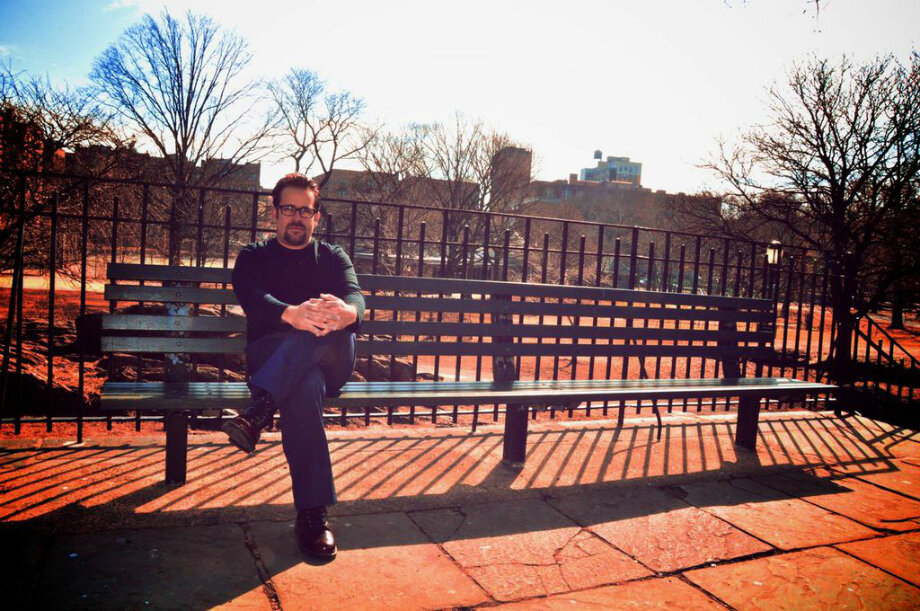Manuel Valera on José Martí
 We're proud to present pianist Manuel Valera and New Cuban Express as they premiere Martí en Nueva York, a song cycle featuring the poetry of 19th century Cuban national hero, poet, orator, and philosopher José Martí. The work was commissioned by Chamber Music America in 2013 and will feature Valera's NCX in collaboration with Argentinean singer Sofia Rei, who has been performing at the Gallery as a leader since 2008 and whom we commissioned as part of our 2009-10 "New Voices" series.Manuel has been familiar with Martí's work for decades, as he writes in his program notes:
We're proud to present pianist Manuel Valera and New Cuban Express as they premiere Martí en Nueva York, a song cycle featuring the poetry of 19th century Cuban national hero, poet, orator, and philosopher José Martí. The work was commissioned by Chamber Music America in 2013 and will feature Valera's NCX in collaboration with Argentinean singer Sofia Rei, who has been performing at the Gallery as a leader since 2008 and whom we commissioned as part of our 2009-10 "New Voices" series.Manuel has been familiar with Martí's work for decades, as he writes in his program notes:
Since I was a child in Cuba — along with virtually every Cuban I know — I’ve been learning about Martí...A political activist, Martí was instrumental in the uprising in the late 1800s of the Cuban People against the Spanish...He holds a very special place in all Cubans’ hearts for his relentless love and devotion to Cuba as well as his passion and deep understanding of the meaning of freedom.
In the same notes, Manuel says this of the music that you'll be hearing:
The music is a mixture of Afro-Cuban folkloric music with contemporary harmonies and lyrical melodies. These poems were meant for everyday folks. So, when composing the music I wanted it to be accessible even for any listener. The work is broken up into eight sections. On some of the pieces I decided to use two poems for the same song, especially if the subject matter and rhythm of the prose were similar. Martí’s poetry has a wide range of emotions and Martí in New York has a similar approach: some of the music is sorrowful and introspective while some is joyous and exuberant.
Martí's work is exemplary in its style, as Manuel writes:
Martí’s style of writing is difficult to categorize. He used many aphorisms — short, memorable lines that con- vey truth and/or wisdom — and long complex sentences. He is considered a major contributor to the Spanish American literary movement known as Modernismo and has been linked to Latin American consciousness of the modern age and modernity.
We spoke to Manuel over the phone to learn more about his approach to this ambitious project. Martí's expatriate status is one major dimension of the poetry that Manuel draws from, which places Martí in a lineage of expatriate literary figures associated with national projects such as Dante and James Joyce:
The Spanish crown saw that he was such a threat to them that they kicked him off of the island of Cuba, so he lived in exile for a very long time—like twenty years or something like that. He lived in Latin America and also in Spain, but he lived in New York in the US towards the late 1880s and early 1890s; he was actually living in New York around 1890-1891.The poems I based my piece on were written while he was living in New York: Versos Sencillos, which is probably some of his most famous work. It’s like his Romeo and Juliet; it’s his masterpiece. Most Cubans are very familiar with this work because the work talks a lot about Cuba, but it’s about love, too, about the whole human experience. He talks a lot about the times as well, like the struggle for peace and for freedom in Cuba.The first part of the piece is about him hating not being able to live in Cuba, so there’s a lot of reminiscing that goes into these poems as well. I feel that the Cubans who live in this situation—those who live in the US who can’t go back because of the Cuban government—they sometimes feel that same kind of sentiment.
Manuel also highlighted the transtemporal dimension of Martí's poetry:
The way he speaks is very blunt about things, you know. From reading his poetry and trying to get even deeper into his poetry, it gives you the sense that Cubans from the 1890s were not that different from Cubans today—just the way of saying things and the way of being sort of coy but also direct at the same time.
We hope that you'll join us to hear this new work come to life on our stage this weekend. Perhaps you'll explore some of this Cuban national visionary's work if you haven't already, or, if you have, revisit it via Manuel's new, lovingly-composed musical interpretation.Manuel Valera and New Cuban Express + Sofia Rei will present "Martí en Nueva York" at The Jazz Gallery this Friday and Saturday, June 6th and 7th, 2014. The performances will feature Manuel Valera on piano, Sofia Rei on vocals, Yosvany Terry on saxophone and chekere, Tom Guarna on guitar, Hans Glawischnig on bass, Ludwig Afonso on drums, and Mauricio Herrere on percussion. Sets are at 9 and 11 p.m., $22 general admission and $10 for Members. Purchase tickets here. Plus, click here to read our conversation with Manuel Valera when he last led a band on our stage in March.Martí en Nueva York by Manuel Valera and New Cuban Express has been made possible with support from Chamber Music America’s 2013 New Jazz Works: Commissioning and Ensemble Development program funded through the generosity of the Doris Duke Charitable Foundation.